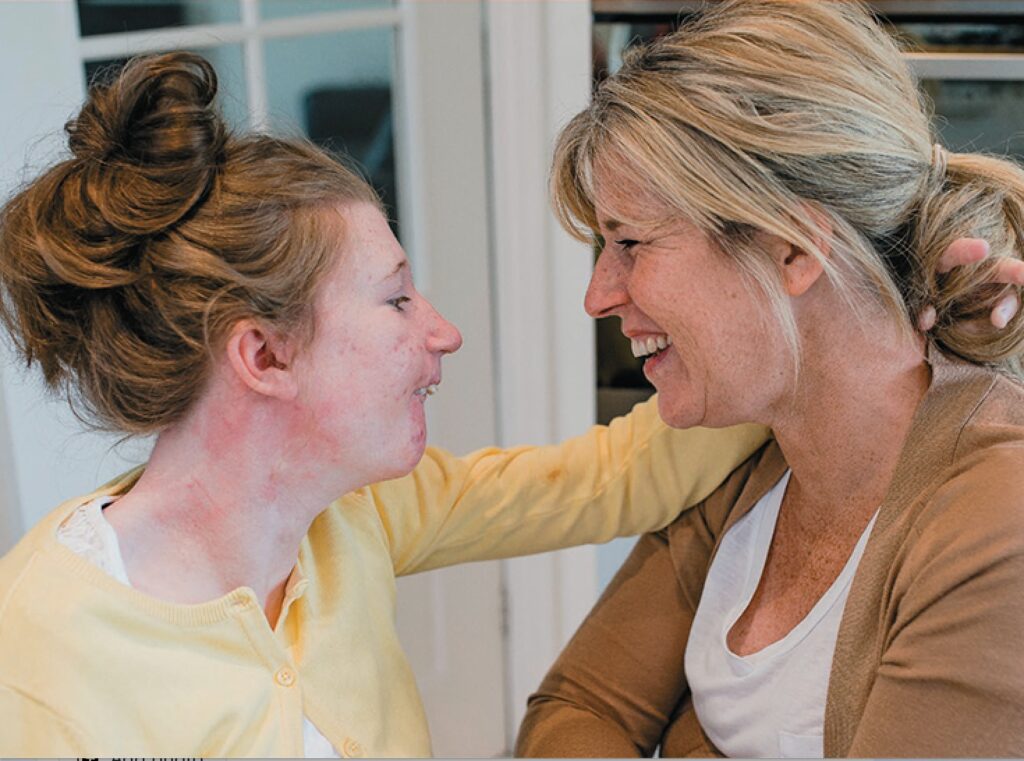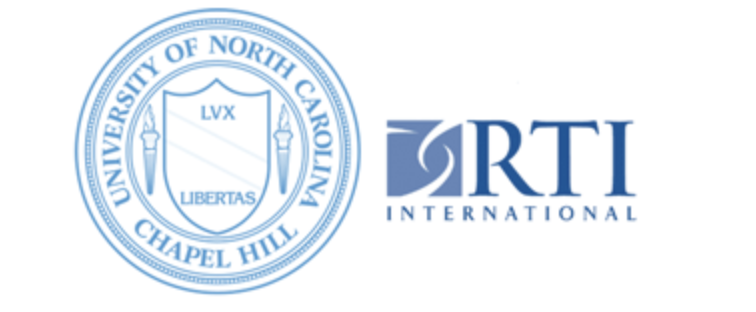Note: The PMSF circulates information but does not promote individual clinical trials. Deciding to enroll in a clinical trial is a personal decision. Families should consider cost, types of assessments, possible health risks, and possible benefit of the intervention. Please read all study materials carefully including the informed consent document and ask the study team any questions before enrolling in a study. This information is provided by the study team and not PMSF. Detailed information on inclusion/exclusion criteria, assessments, and study design, can always be found on clinicaltrials.gov – search “Phelan-McDermid syndrome” under condition, and click on the trial for more information.
Fore more information on clinical trial phases, timelines, and updates in clinical trials for PMS, see: https://www.youtube.com/watch?v=hePdlFqFBwA

Phase II – Neuren Pharmaceuticals testing NNZ-2591 in Phelan-McDermid syndrome (U.S.)
What is NNZ-2591?
From Neuren Pharmaceuticals: NNZ-2591 is a synthetic analog of a peptide involved in the regulation of Insulin-like Growth Factor-1 (IGF-1), a growth hormone that occurs naturally in the brain. IGF-1 contributes to the growth and maturation of brain cells and the connections between them (synapses) and plays an important role in repairing damaged neuronal cells and improving synaptic plasticity.
NNZ-2591 comes as a ready-to-drink strawberry-flavored liquid and can be taken from a dosing cup or syringe which will be provided by your study team. The medication needs to be taken on an empty stomach, though sips of water can be taken after dosing.
NNZ-2591 is not yet approved by the FDA. This clinical trial is to study its safety, tolerability, and efficacy.
Where to find more information on NNZ-2591
This website has information on the study sites, drug information, study length, assessments, and more. If interested in enrollment contact the study team here.
Check here for more specific information on eligibility criteria.
Reimbursement of travel and expenses is managed through PMSF, but policies and reimbursement limits are managed by Neuren Pharmaceuticals. Click here for reimbursement information.
Detailed information on all aspects of the study will also be included in the informed consent document before agreeing to participate in the study.

Phase II – Icahn School of Medicine at Mount Sinai testing Growth Hormone in Phelan-McDermid syndrome (U.S.)

The Seaver Autism Center for Research and Treatment at Mount Sinai is pleased to announce the start of a clinical trial examining the effect of recombinant human growth hormone (rhGH) in children (aged 2 – 12) with Phelan-McDermid Syndrome (PMS).
More information about the Growth Hormone trial
The current study will follow a randomized, placebo-controlled, double-bind, crossover format, in which patients will receive 12 weeks of either rhGH or placebo, and 12 weeks of either rhGH or placebo which they did not receive initially. Every patient will receive the drug at some point in the trial.
There is no cost to participate in the study and there is no reimbursement for travel/lodging.
The study will include routine medical monitoring with frequent visits for safety. Numerous parent questionnaires and clinician-completed tools will be used to measure the effect of rhGH on social withdrawal, language, and repetitive behaviors.
See full info sheet for detailed information on visits, tests, and time commitment.
If interested in participating, please contact Coordinator: Lexie Massa at Alexandra.massa@mssm.edu

Phase II – Longboard Pharmaceuticals conducting the PACIFIC Study (U.S. and Australia)

What is the study?
From the study team: The PACIFIC study is testing an experimental medication called LP352 for the treatment of seizures in adults and adolescents with developmental and epileptic encephalopathies (DEEs).
The PACIFIC Study is a clinical study evaluating participants with DEE. The primary objectives of the study are to assess the safety & tolerability of an investigational study drug. The PACIFIC study is also designed to examine change in seizure frequency over the 90-day treatment period. The study plans to enroll approximately 50 participants with a variety of treatment resistant seizures that fall into the category of DEEs. Approximately 35 study sites in the United States and Australia will participate.
There is no cost to participate in this clinical study.
An individual may qualify for the study if they:
- Are 12 to 65 years of age
- Have been diagnosed with a DEE, including Dravet Syndrome, Lenox-Gastaut Syndrome (LGS), tuberous sclerosis complex (TSC), CDKL5, Doose syndrome or other genetic epilepsies
- Are currently taking 1 to 4 antiseizure medications at a stable dose
- Have a reliable caregiver or study partner
- Meet additional study criteria
From PMSF: Some people with PMS have been diagnosed with a DEE, such as Lennox-Gastaut syndrome (LGS). This trial is focused primarily on safety and tolerability, and is also measuring other impacts such as a correlation of drug concentration with seizure frequency. Even if the person with PMS has not been officially diagnosed with a DEE, they may be able to participate if they have had unprovoked seizures before the age of 5, a history of developmental delay, and a slow or disorganized EEG. See links below for registering to get in contact with the study team.
What is the drug?
LP352 is explained on the Longboard Pharmaceuticals website, see link below: https://www.longboardpharma.com/our-approach/?fbclid=IwAR3lAvmhTNd668FCyJkO41MdivRh_y-0lN57J0Qw-hSRurIHQrQ4HyyRK_w#pipeline
Where to find more information
https://pacific.researchstudytrial.com/
To register to learn more, see: https://pacific.researchstudytrial.com/#register

Phase III – Assistance Publique – Hôpitaux de Paris testing Lithium in patients with both autism spectrum disorder and Phelan-McDermid syndrome (SHANK3 haploinsufficiency) (France)

From Dr. Thomas Bourgeron: We have previously shown that lithium can restore synaptic dysfunction caused by a defect in the SHANK3 gene. The primary objective of the current clinical trial is to evaluate the effect of lithium at 12 weeks (capsules dosed at 62.5mg, 125mg and 250mg), compared to placebo, on social communication deficit in patients with Phelan-McDermid syndrome.
Below are the patient inclusion criteria for the lithium trial:
- Children aged 7 years to 17 years and 8 months
- Minimum weight of 19 kg for children aged 7 years
- Patient with SHANK3 haploinsufficiency, i.e., carrier of a deletion (CNV) involving the SHANK3 gene or a de novo truncating mutation in SHANK3 (Phelan-McDermid syndrome)
- Autism spectrum disorder
- Sexually active patients of childbearing potential must agree to use a highly effective form of contraception during the study period (estrogen/progestin contraception, or intrauterine device, or abstinence)
- Affiliation to social security system
- Signature of consent by the holders of parental authority
- Non-participation in another clinical trial at the same time
Constraints related to participation in the study: recurrent blood sampling during the first month (once a week) at the Robert-Debré Hospital in Paris.
Where to find more information

University of Messina testing Q10 Ubiquinol in Autism Spectrum Disorder and Phelan-McDermid syndrome (Italy)

This trial does not have an FDA-defined “phase,” which may mean the trial is testing a device, behavioral intervention, or a substance not considered an investigational drug.
From the study team: Coenzyme Q10 (CoQ10, ubiquinone or ubiquinol) is a lipid soluble compound present in the majority of living cells. By increasing energy production and antioxidant capacity, CoQ10 is predicted to limit the damage generated by the neuroinflammation and excitotoxicity well documented in ASD brains, ultimately leading to excessive neuritic pruning and/or cell apoptosis. Administration of Q10 ubiquinol to autistic children, as frequently prescribed to children with mitochondrial disorders, yielded promising results with an extremely low incidence and minor impact of side effects in two open trials and in three RCTs involving numerous other active compounds. In the present RCT, each patient will receive Q10 ubiquinol (50-100 mg b.i.d.) + Vit. E (60 mg/die) and polyvitamin B for 4 months and only Vit. E and B for another 4 months (total duration 8 months) in a double-blind, cross-over design.
This trial addresses the efficacy of Q10 ubiquinol, paired with Vit. E and B, not only in “idiopathic” ASD, but also in “syndromic” ASD, using Phelan-McDermid syndrome (PMS) as a paradigm.
To learn more:
https://beta.clinicaltrials.gov/study/NCT04312152

RTI international – testing Parent-Infant Inter(X)Action Intervention (PIXI) in several neurodevelopmental conditions (U.S.)

This trial does not have an FDA-defined “phase,” which may mean the trial is testing a device, behavioral intervention, or a substance not considered an investigational drug.
From the study team: The objective is to develop and test, through an iterative process, an intervention to address and support the development of infants with a confirmed diagnosis of neurogenetic disorders that leave individuals at risk for developmental delays or intellectual and developmental disabilities. The proposed project will capitalize and expand upon existing empirically based interventions designed to improve outcomes for infants with suspected developmental and social delays.
Participants will be infants with a confirmed diagnosis of a neurogenetic disorder (e.g., fragile X, Angelman, Prader-Willi, Dup15q, Phelan-McDermid, Rhett, Smith Magenis, Williams, Turner, Kleinfelter, Down syndromes, Duchenne muscular dystrophy) within the first year of life and their parents/caregivers.
The intervention, called Parent-infant Inter(X)action Intervention (PIXI) will consist of two phases. Phase 1 will include parent education about early infant development and the neurogenetic disorder for which they were diagnosed. Phase 2 includes direct parent coaching around parent-child interaction based on an empirically based parent-mediated early intervention and repeated comprehensive assessments of family and child functioning.
